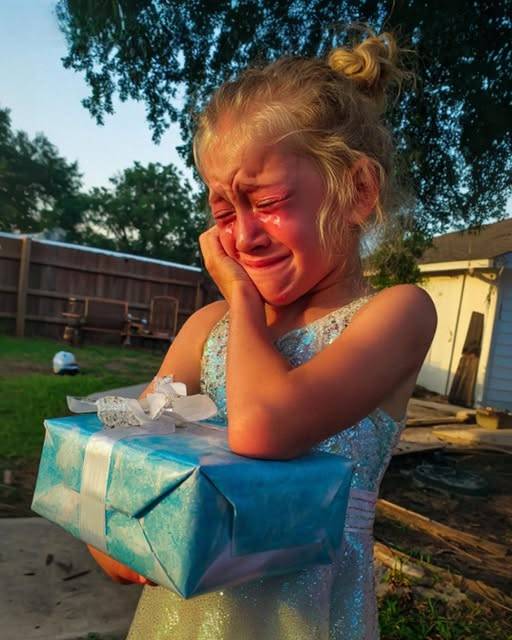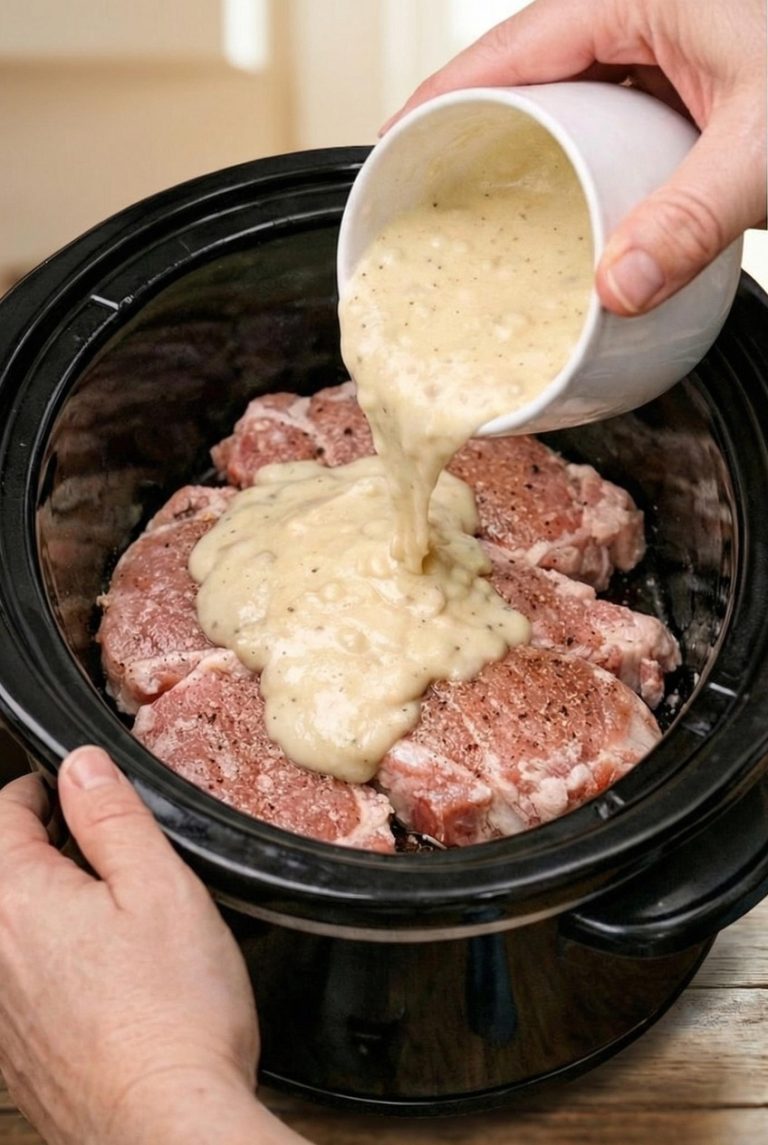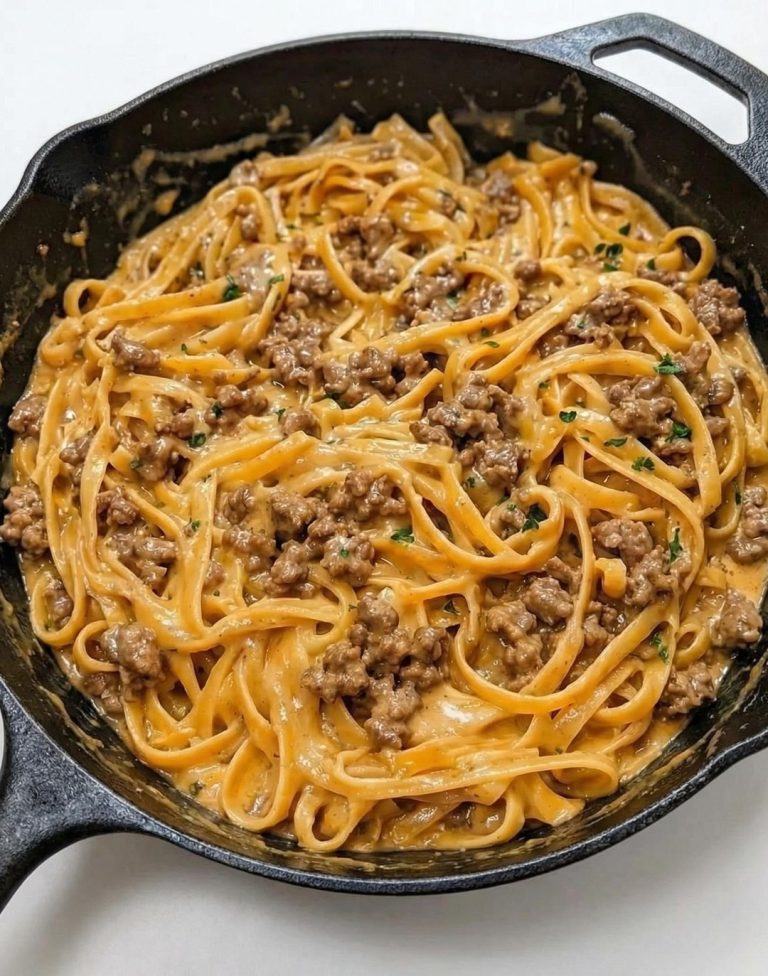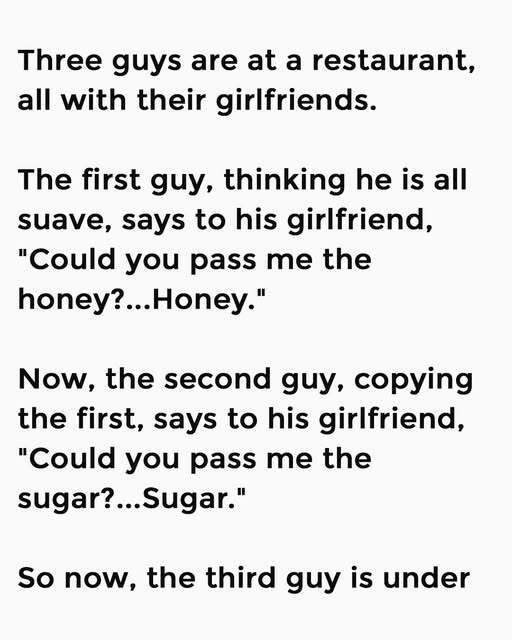
Last Saturday was supposed to be a joyful day.
My husband Daniel’s family was hosting a birthday party for our nephew Jason—he was turning 7, and our little girl Ellie had been counting down the days.
She’s only 6, but she had picked out the perfect gift all by herself—a colorful Pokémon set, wrapped in blue foil with Pikachu stickers she carefully placed one by one. She even wore her sparkly rainbow dress “so the birthday pictures would be magical,” she said.
We dropped her off with hugs and kisses, told her to have fun, and promised to pick her up in a few hours. Daniel and I were looking forward to a quiet coffee date, just an hour or two of peace while Ellie played with her cousins.
But we weren’t gone even an hour when my phone rang.
It was Ellie.
Her tiny voice came through the line, cracked and trembling:
“Mommy… can you please come get me? Grandma Carol kicked me out… I’m in the backyard.”
Then came the sobs. Big, heavy ones. The kind that crush your soul.
I froze. My body went ice cold.
What? What do you mean “kicked out”?
We FLEW back to the house, Daniel barely stopping at the stop signs, white-knuckling the wheel the whole way. My heart pounded so hard I thought it would explode before we even got there.
Also Read : Camera Captures Angel Rising Above Helicopter After Patient Passes Away
And when we arrived, I saw her—my baby girl—standing in the middle of the backyard. Alone. Holding the same gift she had been so excited to give.
Her sparkly dress was rumpled. Her shoes were muddy. And her face… her face was streaked with tears, bottom lip trembling as she tried to be brave.
Daniel leapt out and scooped her into his arms. She buried her face in his neck and cried, “I just wanted to sing happy birthday…”
I was already halfway through the front door, fury boiling in my chest.
Inside, the house was filled with laughter, music, and the smell of birthday cake. Balloons were strung across the ceiling, kids were playing with toys—and there she was: Carol, my mother-in-law, sitting at the table like nothing had happened, casually eating a slice of cake.
I walked up to her, my voice shaking but loud enough for the whole room to hear:
“WHY is Ellie outside crying in the backyard?! WHAT did you DO?”
The music didn’t stop, but the energy in the room shifted. People looked up, forks paused mid-air. I could feel my hands trembling as I clutched my coat, waiting for Carol to answer.
She dabbed the corner of her mouth with a napkin, placed her fork down slowly… and then she looked up at me—calm, cold, calculated.
And what she said next?
It wasn’t an apology.
It wasn’t an explanation.
It was a sentence so cruel, so heartless, I had to stop myself from throwing the cake in her face.
She looked me dead in the eye and said:
“Because she’s not really family. She’s YOUR daughter, not mine.”
The room went silent. Gasps broke out across the table. Even Jason stopped unwrapping his presents, wide-eyed.
Daniel stepped forward, his voice low but thunderous:
“Mom. Enough. You don’t get to humiliate my daughter like that. She’s SIX years old. And if you can’t love her as your granddaughter, then you don’t get to see her. Period.”
Carol’s smirk faltered for the first time, but she crossed her arms. “Oh, stop being so dramatic. She’ll forget about it tomorrow.”
But Ellie’s little sobs from Daniel’s shoulder said otherwise. She wasn’t going to forget. Neither was I.
I leaned down so Carol could see the fire in my eyes. “You just showed this entire family who you really are. I don’t care if you’re the hostess or the grandmother—you never get to make my child feel unwanted.”
I turned to the rest of the table. “We’re leaving. And next time, if you want to see us, the invite better not come from her.”
Daniel didn’t argue. He picked Ellie up, and together, we walked out, leaving Carol sitting there in stunned silence.
That night, I tucked Ellie into bed, brushing her hair back from her tear-stained face. She whispered, “Mommy… am I really not family?”
I kissed her forehead, holding her close. “You, my love, are the heart of this family. Don’t you ever forget it.”
And as I sat there with her, I made a quiet promise: Carol could try to play her cruel little games, but I’d never let her win—not at Ellie’s expense.
From that day on, I stopped trying to please her. Because sometimes protecting your child means finally drawing a line in the sand.
And I drew mine that night.
The days after the party were tense. Carol tried calling Daniel once, but he ignored it. Then she texted me directly, writing:
“You overreacted. Kids need to toughen up. I was just being honest.”
I stared at the message, shaking my head. Honest? No. It was cruel. There’s a difference.
Daniel finally confronted her over the phone a week later. I overheard him, voice sharp as a knife:
“Mom, you crossed a line. Ellie is six. SIX. She was so excited for that party, and you crushed her. I don’t care what excuses you come up with—you don’t talk about my daughter like that ever again.”
Apparently, Carol scoffed. “Oh, she’ll get over it. You’re making a mountain out of a molehill.”
That was the last straw for Daniel. He told her, plain and clear:
“Until you apologize to Ellie and prove you can treat her with kindness, you won’t see her. No holidays, no birthdays, nothing. I’m done letting you hurt her.”
For once, Carol didn’t have a quick comeback. She hung up.
Weeks passed. Easter came, and normally the whole family gathered at Carol’s house. This year? We stayed home. Instead, we had an egg hunt in the backyard just for Ellie. Her laughter echoed across the yard, bright and free, and I realized: this is what peace feels like.
Word got around, of course. Other family members started reaching out—some to take Carol’s side, but more of them to say they were ashamed of how she treated Ellie. Even Jason’s mom called me privately and admitted, “I thought it was horrible what she did. I didn’t say anything then, but I should have.”
Eventually, Carol showed up at our doorstep. No warning. No cake, no fake smiles—just standing there with her arms crossed, looking smaller than I’d ever seen her.
“I came to see Ellie,” she said.
Daniel didn’t even open the door fully. “Not until you have something to say to her first.”
Carol hesitated. Then her eyes flicked toward me. And finally—FINALLY—she said the words I never thought I’d hear:
“…I was wrong. I shouldn’t have said what I said. Ellie is family.”
Daniel looked at me, silently asking if I believed her. I didn’t—not fully. But I opened the door just enough for Ellie to peek out. She stood there, cautious, clutching her stuffed Pikachu.
Carol bent down awkwardly and whispered, “I’m sorry, Ellie.”
Ellie didn’t say anything. She just nodded and went back inside.
It wasn’t forgiveness, not yet. But it was enough for now.
Because Ellie knows—deep down—she doesn’t need anyone’s approval to belong. She already does.
And as for me? I’ll never forget the day my daughter cried in the backyard, clutching her gift. And I’ll never forgive Carol for showing me exactly who she is.



